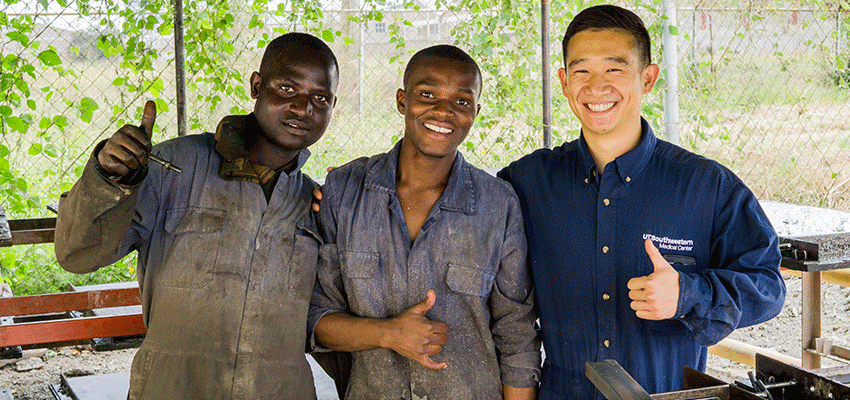
Five major components define a slum household according to UN Habitat: lack of access to an improved water source, lack of access to improved sanitation facilities, lack of sufficient living area, lack of housing durability and lack of security of tenure. In Kenya, an estimated 6.4 million of the country’s 45.5 million residents live in these informal settlements, a figure equivalent to 56% of the nation’s urban population.(1) Besides the ramifications to health, livelihoods, and education that such living conditions have, perhaps the most crippling effect of these settlements is their contribution to a “level of perpetual poverty, deprivation, and socio-spatial exclusion . . . a condition that also affects the overall prosperity of the cities and towns in which they exist.” (2)
This summer, I am working with MIT D-Lab in partnership with Kwangu Kwako, LTD (KKL), a current D-Lab Scale-Ups Fellowship venture. KKL is a startup, which provides safer, healthier and more secure housing alternatives to the traditional informal settlement structures in Kenya, which are typically comprised of iron sheets or mud bricks set to wooden frames. To do this, they use reinforced pre-cast concrete panels made by local artisans within the community. The outcome is a safer, simpler and more cost-effective alternative. The name Kwangu Kwako means “your place, my place” in Swahili, somewhere where anyone would be happy to live.
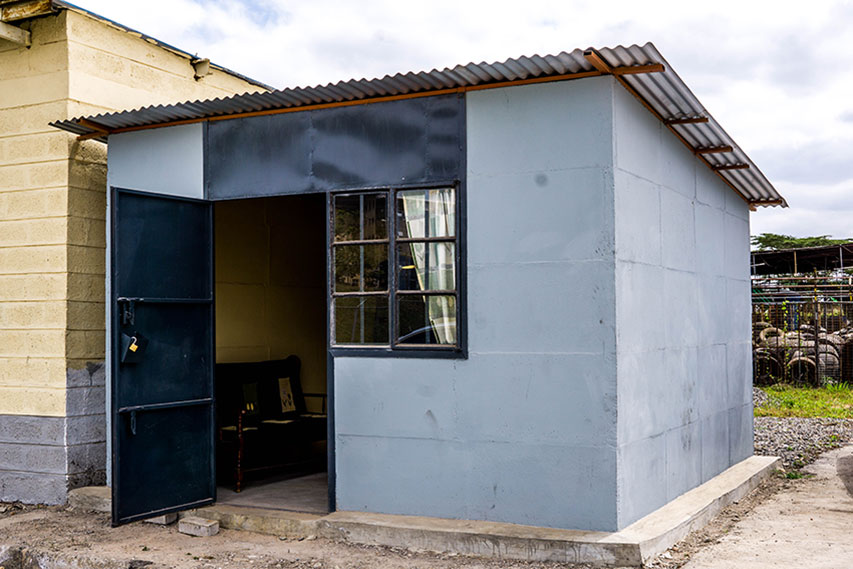
My role is to help KKL construct an organizational evaluation framework and to collect, analyze, and communicate impact data. While this process involves abstract tasks such as defining the organization’s theory of change, at the heart of it, I am seeking to answer the question that every social impact organization wants to know: “Are we actually helping the people that we are trying to help?”
Specifically, co-founder, Winnie Gitau, framed the question saying, "Our product is a home. Our impact is number of people housed. However, our impact goes far beyond that. . . How can we assess and measure impact on self-esteem improvements in dignity, [security, and safety]? How does that [affect] confidence and pride . . . education, health, job performance? What is the impact of improved homes on the wider community?"
After a month confined to desk research from Nairobi’s fantastic selection of coffee shops due to some work visa issues, I was excited to finally spend time with our staff and meet some community members last week. Although I had a blast spending a few hours mixing concrete and making housing panels with our manufacturing team, I am more excited to get into the field and talk to people about what their lives are like and how KKL has helped or might be able to help in the future.
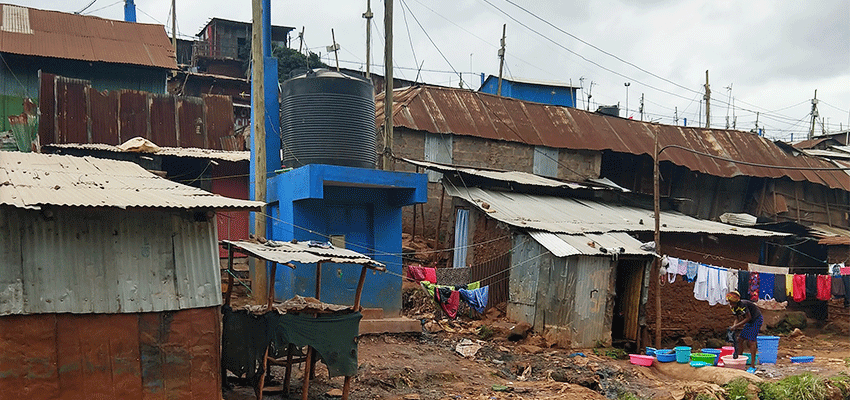
My interviews will focus on two populations at two different instances in the “customer journey.” I will talk to current and potential customers, which are structure owners (landlords) in informal settlements, and current and potential beneficiaries, which are the residents (renters). I have also written surveys for KKL to do long-term follow-up with both populations, but the timeline of these interviews falls outside of my scope of work.
Our target populations primarily live in two settlements in Nairobi, Kawangware and Kibera, the latter of which many refer to as Africa’s largest slum with an estimated population of around 250,000 people. Last week, I had the chance to meet a young woman named Milka Achieng who works with a community-based organization in Kibera called Diptop. Milka introduced me to some residents in the neighborhood whom I was able to survey for our data collection.
As Milka and I wove our way through the densely clustered homes, shops, and food stands, skipping over drainage trenches and dodging hand-pulled lorries, I felt as if I were closer to the rural Tanzanian communities where I had lived years before than the bustling industrial and financial center of the entire East African region.
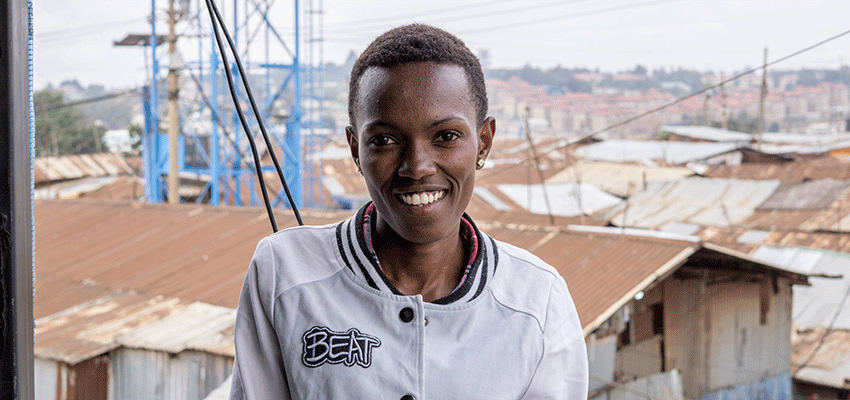
Yet despite the clear “socio-spatial exclusion” of Kibera from greater Kenya’s recent economic development, I could not help but hum along with the vibrancy and energy around me rather than fixate on the community’s palpable needs. Rather than the helplessness, despair, or victimhood that one might expect to observe in accordance to typical depictions of urban poverty, I found Kibera to be bustling with life and tight-knit community.
While I had the chance to interview a number of current and potential KKL customers and beneficiaries, my conversation with a friend of Milka’s named Bob Medusa made the greatest impression on me.
A young man who had spent his whole life in the settlement, Medusa was quick to remind me that “living in Kibera is just a life like any other life.” “[It is] a little bit fun, a little bit challenging – kidogo,” he said with a roguish smile.
Despite expressing concerns about substandard housing and infrastructure, lack of employment opportunities for youth, and pressure for them to join gangs, Medusa asserted that: "Kibera is a very talented and focused nation. Life in Kibera it’s way very easy, it’s way very, very fun, it’s way very interesting. It’s a life like any other life. We have kids like any other kids. With any empowerment, we can grow big and we are a big change to the world. As everybody says, the leaders are the young ones, not the big ones, so I guess Kibera is full of many young ones who are many leaders."
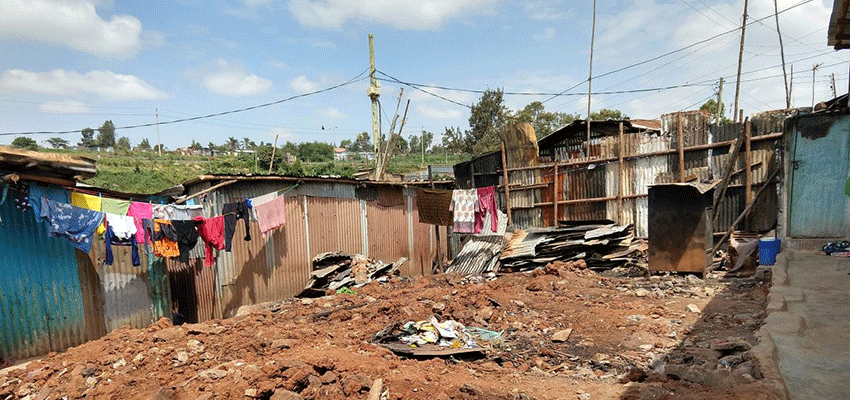
As I continue my work this summer, I am convinced of two things: while there is great need in our communities, including for KKL’s product—affordable houses that will equally repel violence, fires, and floods—there is also great strength. I am excited to see KKL tap into this strength and to help create homes, which foster its growth and development even more.
---------------------------------
(1) Habitat, U. N. “Slum Almanac 2015–2016: Tracking Improvement in the Lives of Slum Dwellers.” Participatory Slum Upgrading Programme (2016).
(2) Habitat, U. N. “Slum Almanac 2015–2016: Tracking Improvement in the Lives of Slum Dwellers.” Participatory Slum Upgrading Programme (2016).
About the writer
Geoff Tam is a rising second-year master’s student at the Tufts Fletcher School of Law and Diplomacy studying development economics and human security. His work with the Kwangu Kwako, Limited is sponsored by the MIT D-Lab, the Tufts Institute of Global Leadership, and the Fletcher Office of Career Services.

